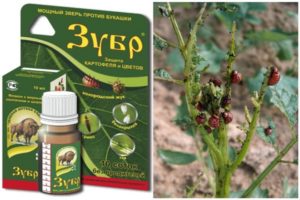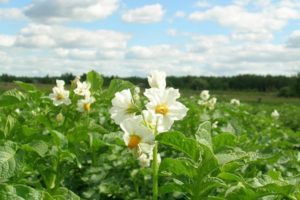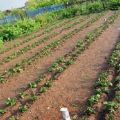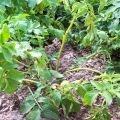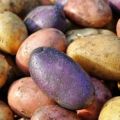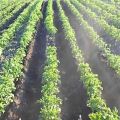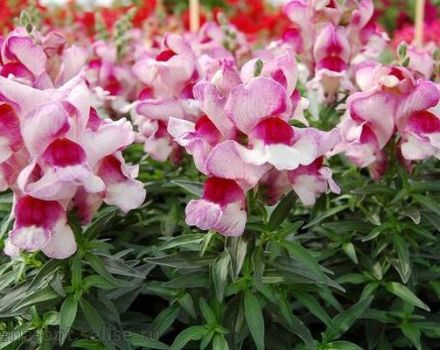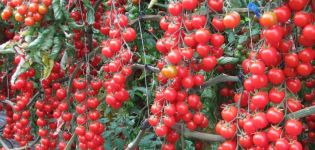Application of Azofosk fertilizer for potatoes
Looking for good fertilizer for potatoes, then take the advice of experienced agronomists - opt for Azofosk. The drug is widely used in agricultural enterprises; for summer residents, domestic chemical enterprises produce the drug in convenient small-volume packages. Fertilizer is applied for any vegetable and fruit crops, used in floriculture.
Composition
Azophoska is white or gray granules with a diameter of 1 to 5 mm. The granules do not absorb moisture, therefore, even with prolonged storage, they remain friable. It is easy to dissolve the drug in water, aqueous solutions of azophoska are quickly absorbed by plants. On sale you can buy packages with fertilizer Nitroammofosk, this is the same azofosk, the only difference is in the name.
Azofosk contains trace elements necessary for any plant:
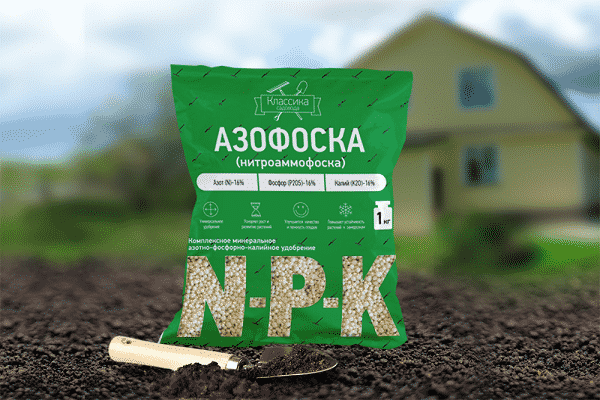
- N is nitrogen;
- P is phosphorus;
- K is potassium.
On different types of soils, the need of plants for these elements is different, therefore, the production of several brands of the drug Azofosk has been established, the most popular of them are:
- NPK 16:16:16;
- NPK 19: 9: 19;
- NPK 22:11:11.

The first brand contains trace elements in equal proportions, it is recommended to add it to the soil of the middle lane. This farming zone is characterized by a low phosphorus content in the fertile layer.
The second type of fertilizer is suitable for southern regions with an arid climate. The soils there are usually rich in phosphorus. The third brand is introduced into the soil depleted by annual exploitation. In a small amount, the preparation contains sulfur (2.6–4%); plants need it for photosynthesis.
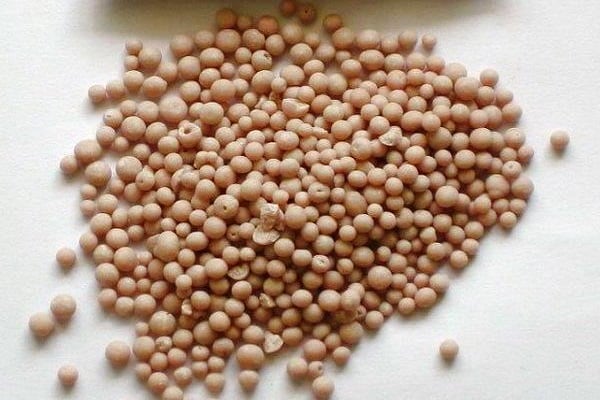
About the benefits of application
For potatoes Azofoska is an ideal fertilizer. When using Azofosk fertilizer, a convincing increase in yield is obtained. The benefits of using it are as follows:
- potato bushes receive a full range of nutrients;
- plants adapt better to sudden changes in weather;
- potatoes get sick less often;
- tubers retain their consumer qualities longer during storage.

Nitroammophos can be fed to tomato seedlings after transplanting it into the ground. Young tomatoes take root faster, they get sick less often. Fertilizer can be applied to any type of soil (chernozems, swampy areas, loams), this is its undoubted advantage over other preparations.
Practice has shown that the results from the application are more noticeable on heavy soils, in which it is difficult to provide the same concentration of nutrients throughout the planting area. The cost of the product is also included in a number of advantages, it is quite democratic. On average, 1 sq. m. spend 40 g of Azofoski. Due to its low cost, the tool is cost-effective to use even on large planting areas.
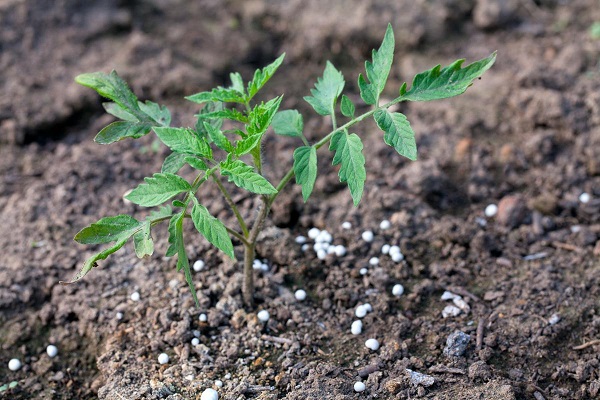
Let us estimate what the elements N, P, K are for:
- N - promotes protein synthesis, which affects growth and life cycle duration;
- P - needed by plants for development throughout the growing season;
- K - affects fruit taste, root quality and local immunity.
Sulfur is contained in Azophoska in a minimal amount, but it is quite enough for normal photosynthesis. Sulfur protects our health, it neutralizes nitrates formed when excess nitrogen content.
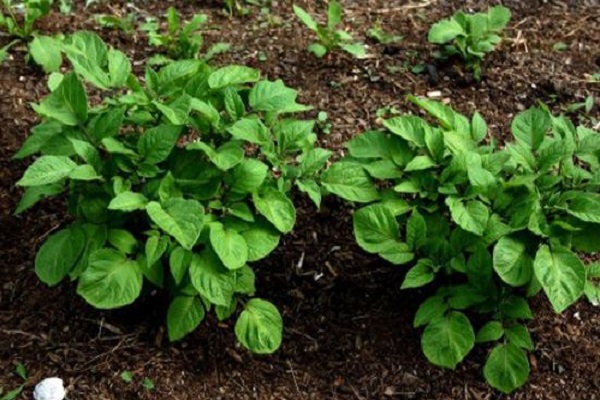
Tips for correct use
Any fertilizer will not be harmful if applied wisely, without violating the recommendations specified in the instructions for the drug. This also applies to Azofoska. Vegetables in your garden will not contain harmful impurities if you adhere to the rules below:
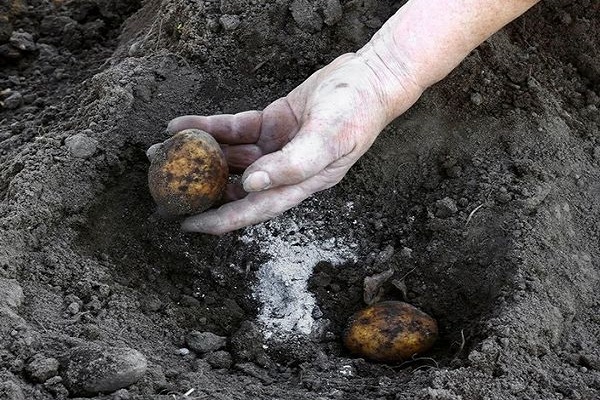
- Apply fertilizer for each crop, not exceeding the norm, the excess fertilizer in nitrate form will accumulate in the fruits.
- In order to prevent the accumulation of nitrate compounds in the soil, use not only mineral fertilizers, alternate them with organic matter, the lighter forms are most useful: liquid green fertilizers, compost.
- Do not add Azofoska to unheated soil. With a lack of heat, nitrates will accumulate in the upper soil layer. In autumn, add Azofoska in early September, while the soil is warm. In spring, not earlier than the end of May. At this time, the earth has already warmed up, but it still retains the moisture obtained from the melting of snow.
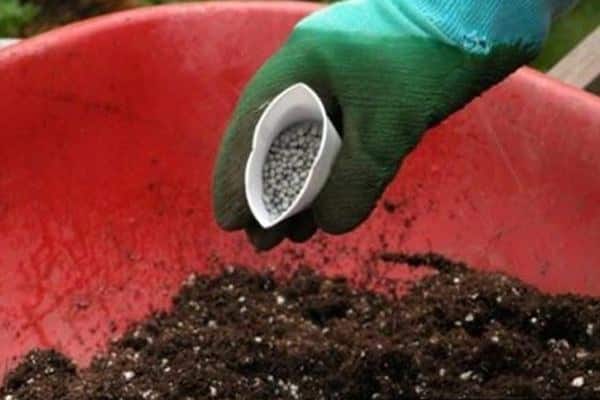
Correct storage
Azofoska is included in the group of drugs of III hazard class. It has specific features that should be considered when storing large amounts of fertilizer:
- a large amount of dust from Azofoska, accumulated in the storage, can explode when the air is very dry;
- when heated to 200 ° C, toxic substances harmful to health are released.
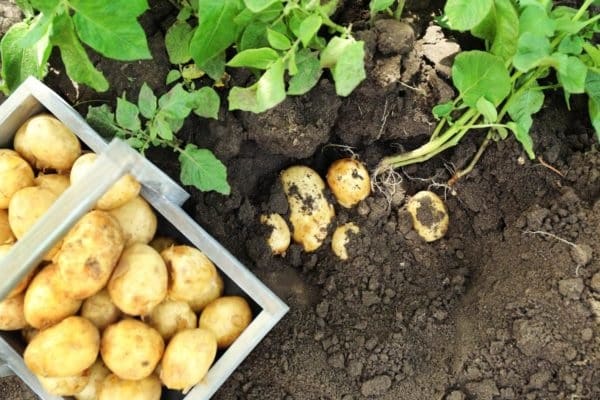
The listed risks are typical for storage of fertilizers on a large scale. In summer cottages, fertilizer is used in small volumes, it is easy and safe to store it. When storing, follow the rules:
- after use, seal the fertilizer bag with a paper clip;
- store in a dry, dark place with good ventilation;
- shelf life up to 1.5 years.
At the end of the shelf life, the fertilizer should not be used, it is better to dispose of it correctly.
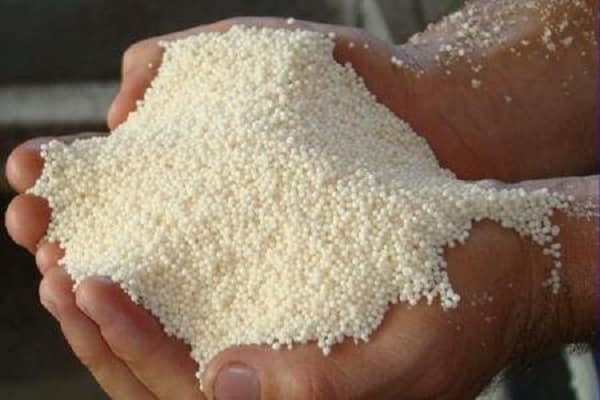
Instructions for use
The benefits of Azofoska are observed when applied under any vegetable, flower and fruit crops. The fertilizer has no limitation on the age of the plants; it is applied for seedlings and for adult plants. Application rates for different crops are shown in the table.
| Culture | area (place) of introduction | weight (g) |
| annual vegetable crop | 1 ha | 45 |
| potatoes | hole | 4 |
| mature bush, tree | the entire area of the trunk circle | 35 |
| liquid fertilizer for summer root dressing | water 1 l | 2 |
Timing
On heavy soils, Azofoska should be applied in the fall after harvesting and cleaning the ridges from plant debris. In sandy and sandy loam soils, fertilizer during winter and spring can go away with melt water, so it is applied twice: in autumn, in spring. In the spring, Azofoska is added to the ground immediately before planting (seeds, seedlings, seedlings).
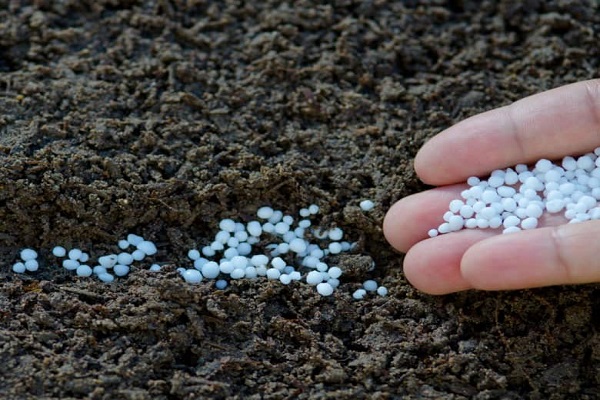
About the danger
For some summer residents, the fear of nitrates has grown into a real phobia. The second name of Azofoska - nitroammofoska terrifies them. Few people know that "nitro" in this case means the nitrate form of active elements (N, P, K). This form of nutrient is the easiest for plants to absorb.
It should be noted that organic matter (manure, humus, compost), when applied excessively to the soil, also contaminates it with harmful nitrate compounds. Adhering to application rates with granular fertilizers is much easier than with manure.
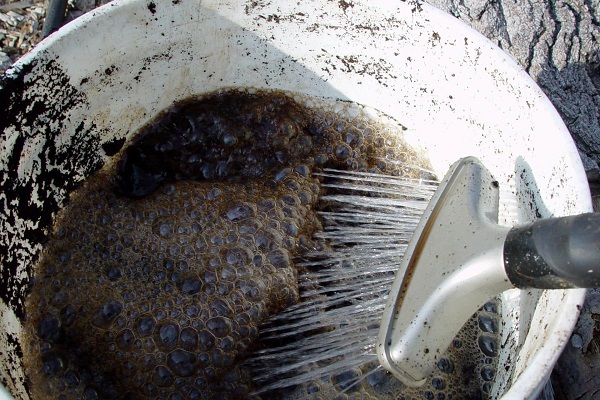
Conclusion
Do not be afraid to use modern mineral fertilizers in gardens and vegetable gardens.When properly applied to the soil, Azofosk will benefit the crop. Azofoska is the best fertilizer for a valuable vegetable crop in our country - potatoes.

